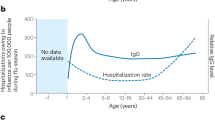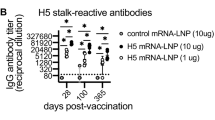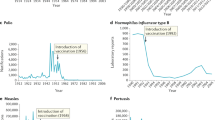Abstract
HÆMORRHAGIC septicæmia of cattle and buffaloes caused by Pasteurella multocida type I kills many thousands of animals in Asia each year. It is possible to immunize against the disease effectively with improved vaccines, and in addition 5–10 per cent of animals possess a naturally acquired immunity. Both kinds of immune animals have in their sera circulating antibodies which are detectable by the passive mouse protection test. Hitherto, it has been difficult to find whether these protective antibodies operated by a bactericidal or an opsonizing mechanism. Experiments using cultured bacteria, even those from primary plates sown with infected blood, showed no significant differences between known positive and negative sera in the bactericidal test of Muschel and Treffers1, or in phagocytosis tests in roller tubes using heparinized or citrated blood.
This is a preview of subscription content, access via your institution
Access options
Subscribe to this journal
Receive 51 print issues and online access
$199.00 per year
only $3.90 per issue
Buy this article
- Purchase on Springer Link
- Instant access to full article PDF
Prices may be subject to local taxes which are calculated during checkout
Similar content being viewed by others
References
Muschel, L. H., and Treffers, N. P., J. Immunol., 76, 1 (1956).
Knox, K. W., and Bain, R. V. S., Immunology (in the press).
Author information
Authors and Affiliations
Rights and permissions
About this article
Cite this article
BAIN, R. Mechanism of Immunity in Hæmorrhagic Septicæmia. Nature 186, 734–735 (1960). https://doi.org/10.1038/186734b0
Issue Date:
DOI: https://doi.org/10.1038/186734b0
Comments
By submitting a comment you agree to abide by our Terms and Community Guidelines. If you find something abusive or that does not comply with our terms or guidelines please flag it as inappropriate.



